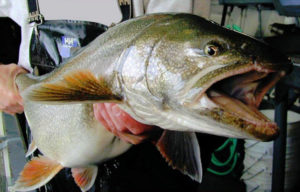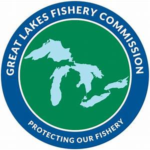An article from WWA’s Words From The Wardens.
This article originally appeared in Wisconsin Waterfowl Association’s March, 2021 eNewsletter.
As we enjoy socially distanced – and likely limited – outdoor activities during these frigid winter weeks, I thought now is a great time to tell Wisconsin Waterfowl Association members a bit about what I do for you at the Wisconsin Department of Natural Resources’ (DNR) Division of Public Safety and Resource Protection (formerly known as the Bureau of Law Enforcement).
This is my 22nd year as a conservation warden. I spent my first 14 years working in Manitowoc County along the Lake Michigan shoreline. Spending time outdoors fishing, hunting, camping and canoeing solidified my desire to pursue this career protecting our state’s natural resources and making sure that these activities are available for future generations. When we’re not in the middle of a public health emergency, Wisconsin is a destination state for all sorts of outdoor fun – especially fishing and on-the-water activities.
Aquatic Trade Enforcement Partners
 In 2014, I became DNR Law Enforcement’s program administrator – or “administrative warden” – for commercial fishing and other aquatic species in trade. I work with other DNR programs, citizen boards and organizations comprised of natural resource professionals from other states. Those of us in these various programs, boards and organizations mainly focus on commercial fisheries and other aquatic trade industries.
In 2014, I became DNR Law Enforcement’s program administrator – or “administrative warden” – for commercial fishing and other aquatic species in trade. I work with other DNR programs, citizen boards and organizations comprised of natural resource professionals from other states. Those of us in these various programs, boards and organizations mainly focus on commercial fisheries and other aquatic trade industries.
This means I administer our division’s involvement with commercial fishing in the Great Lakes of Michigan and Superior, along with the Mississippi River and inland waters. Sometimes, this includes working with groups regarding Great Lakes charter fishing and fish guiding on the Great Lakes and investigating the illegal trade in aquatic invasive species (AIS).
My job’s main focus is to see the commercial fishing-related industries from a broad perspective – from both a statewide view and from a Midwestern view. This helps to plan for what’s ahead, such as the increased potential for illegal fishing based on market demands for specific fish products and threats from AIS being sold online.
 I serve as Wisconsin’s representative on a few teams. This includes the Great Lakes Fishery Commission – Law Enforcement Committee, for which I also serve as chair. I also am the state’s law enforcement representative on the Association of Fish and Wildlife Agencies’ Invasive Species Committee. And because we share the waters of the Mississippi River, Menominee River and two of the Great Lakes with other states and the province of Ontario, I work closely with them on joint projects and investigations. This helps ensure we are making the best use of time and funds, rather than finding out later that we had been working on the same project.
I serve as Wisconsin’s representative on a few teams. This includes the Great Lakes Fishery Commission – Law Enforcement Committee, for which I also serve as chair. I also am the state’s law enforcement representative on the Association of Fish and Wildlife Agencies’ Invasive Species Committee. And because we share the waters of the Mississippi River, Menominee River and two of the Great Lakes with other states and the province of Ontario, I work closely with them on joint projects and investigations. This helps ensure we are making the best use of time and funds, rather than finding out later that we had been working on the same project.
There is a lot of teamwork by experts in Wisconsin and beyond who collaborate to keep our fisheries – and the waters that support those fisheries – as safe and healthy as possible. Wardens don’t do it alone. Fisheries biologists and technicians don’t do it alone. Aquatic Invasive Species Specialists don’t do it alone. It is truly a team effort.
Case Highlights
To give you a sense of some of the things conservation wardens work on related to commercial fishing, here are a few cases from the past several years:
- Convictions of men from western and north-central Wisconsin for selling sport-caught game fish, and an out-of-state wholesale fish dealer who repeatedly went unlicensed and couldn’t account for 772,000 lbs. of whitefish and walleye in its possession.
- Convictions of a western Wisconsin wholesale fish dealer for not being able to account for 22,000 lbs. of sturgeon and catfish.
- Felony and misdemeanor convictions in federal court for a northeast Wisconsin wholesale fish dealer business for purchasing and selling illegal lake trout.
- Audit of commercial fishers and wholesale fish dealers in northern Wisconsin resulting in dozens of convictions and court-ordered penalties for tens of thousands of pounds of fish the license-holders could not account for.
- Investigations and convictions of numerous Lake Michigan charter fishing businesses for not reporting their fishing trips, and in many cases, operating without the required Sport Trolling License.
That’s just a bit of what your wardens do for you and your fisheries as they relate to the commercialization of the resources. I’ll be back in a few months to tell you more about our efforts to stop the spread of harmful aquatic invasive species being bought and sold throughout our state and across the Midwest.
If you have questions about our commercial fishing-related industries or want to contact me, please email me at Robert.Stroess@wisconsin.gov.

